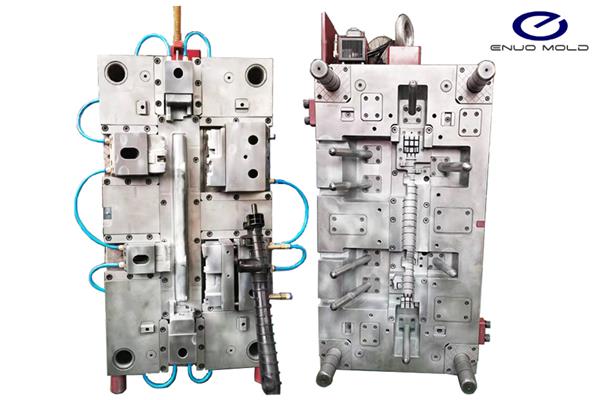How to improve the service life of the mold
For users, increasing the service life of the mold can greatly reduce the cost of stamping. The factors that affect the service life of the mold are as follows:
1. Material type and thickness;
2. Whether to choose a reasonable mold gap;
3. The structure of the mold;
4. Whether the material has good lubrication during stamping;
5. Whether the mold has undergone special surface treatment;
6. Such as titanium plating, titanium carbonitride;
7. Align the upper and lower turrets;
8. Reasonable use of adjusting gaskets;
9. Whether the oblique blade mold is used correctly;
10. Whether the mold base of the machine tool is worn or not;

Mold grinding
1. The importance of mold grinding
The regular polishing of the mold ensures consistent stamping quality. Regular grinding of the mold can not only increase the service life of the mold, but also increase the service life of the machine tool. Must grasp the right time to sharpen the knife.
2. The specific characteristics of the mold need to be sharpened
For the sharpening of the mold, there is no strict number of hammer strokes to determine whether sharpening is required. This mainly depends on the sharpness of the blade. Mainly determined by the following three factors:
(1) Check the fillet of the cutting edge. If the fillet radius reaches R0.1mm (the maximum R value cannot exceed 0.25 mm), sharpening is required.
(2) Check the stamping quality. Are there big burrs?
(3) Determine whether sharpening is required according to the noise of machine punching. If the same pair of molds have abnormal noises during punching, it means that the punches are blunt and need to be sharpened.
Note: The edge of the blade is rounded or the back of the blade is rough. Sharpening should also be considered.
3. Sharpening method
There are many ways to sharpen the mold. This can be achieved with a special sharpener or on a surface grinder. The sharpening frequency of punch and die is generally 4:1. Please adjust the height of the mold after sharpening the knife.
(1) The hazards of incorrect sharpening methods: incorrect sharpening will aggravate the rapid damage of the mold blade, resulting in a greatly reduced number of hammer strokes per sharpening.
(2) The benefits of the correct sharpening method: Regular sharpening of the mold can keep the punching quality and accuracy stable. The blade of the mold is slowly damaged and has a long service life.
4. Sharpening rules
The following factors should be considered when grinding the mold:
(1) In the case of R0.1-0.25 mm, the sharpness of the cutting edge fillet depends on the sharpness of the cutting edge.
(2) The surface of the grinding wheel should be cleaned.
(3) It is recommended to use a soft coarse-grained grinding wheel. Such as WA46KV
(4) The grinding amount (tool) should not exceed 0.013 mm each time. Excessive grinding will cause the mold surface to overheat, which is equivalent to annealing treatment, the mold becomes soft, and the life of the mold is greatly reduced.
(5) Sufficient coolant must be added when grinding.
(6) When grinding, the punch and the lower die should be firmly fixed, and special fixtures should be used.
(7) The grinding volume of the mold is constant. If this value is reached, the punch will be scrapped. If you continue to use it, it is easy to damage the mold and the machine.
(8) After polishing, the edges should be treated with a whetstone to remove excessively sharp edges.
(9) After sharpening, clean, demagnetize and oil.
Post time: Dec-11-2021



